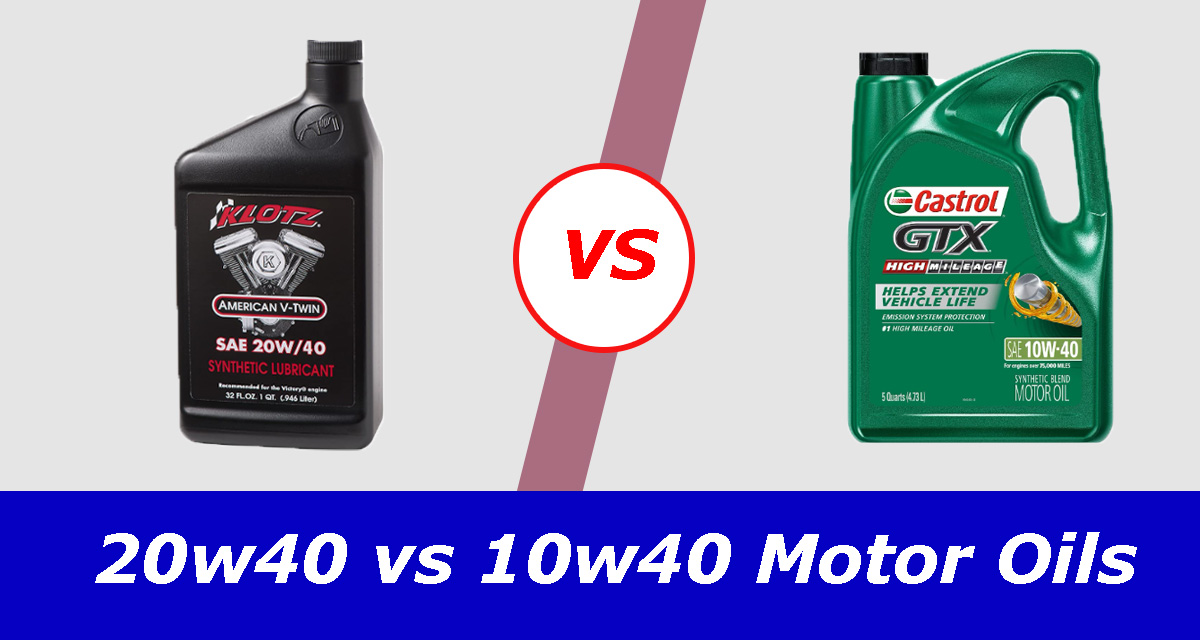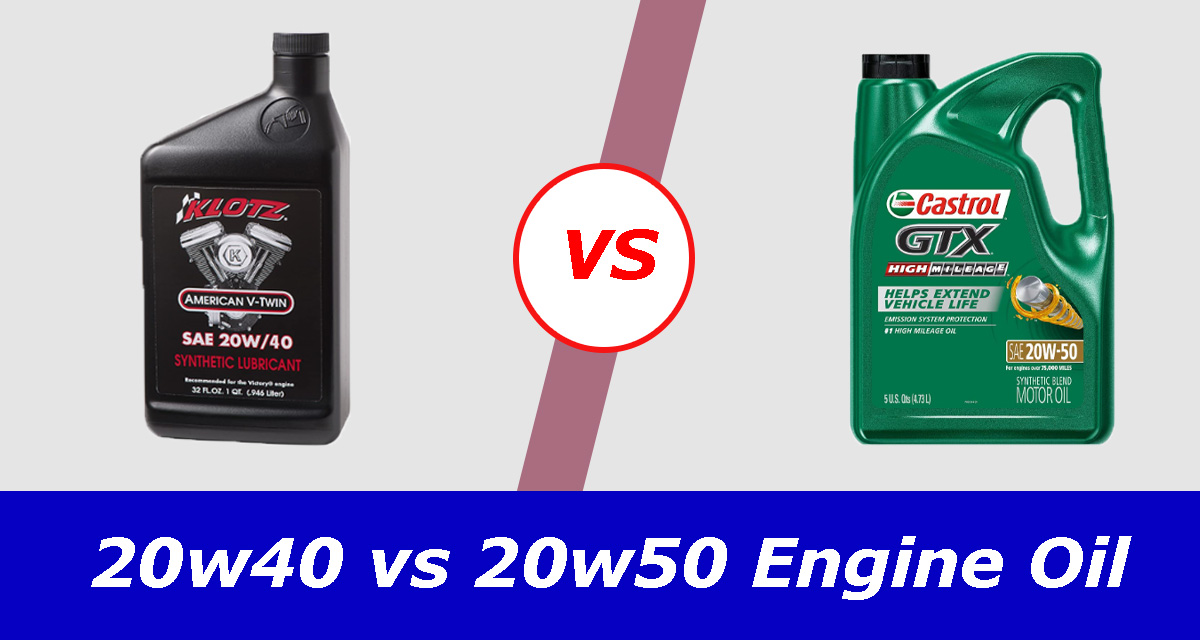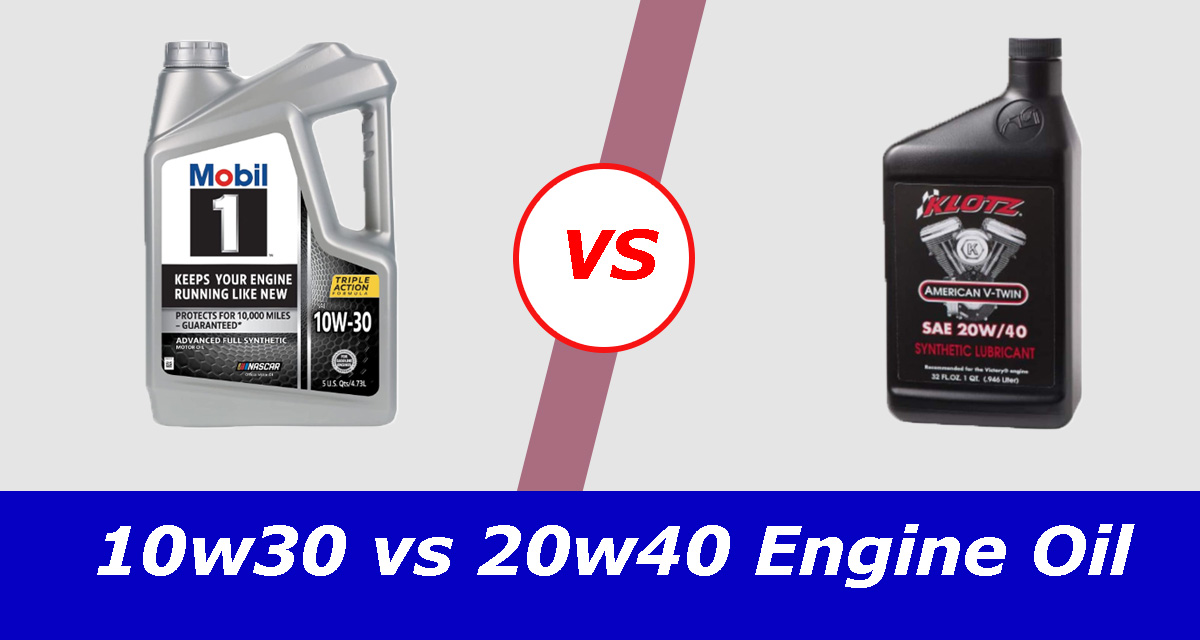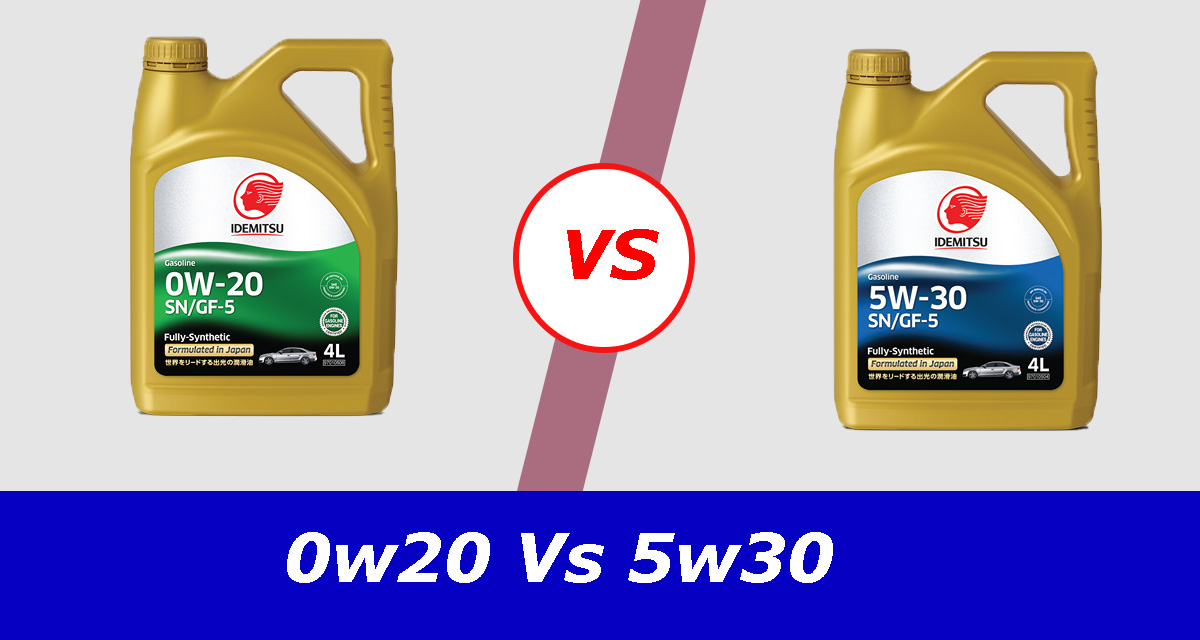Engine oil is the lifeblood of a vehicle. To keep a vehicle running in good condition, you have to input proper engine oil into your vehicle’s engine. Without engine oil, an engine won’t be able to perform properly. Engine oil prevents the metal parts in an engine from grinding against each other. It provides the necessary lubrication to a car’s engine and does not allow it to wear out.
While putting good engine oil inside your vehicle is important, the more crucial part is to put in the “right type” of oil inside your vehicle’s engine. Especially, what viscosity of oil you are putting in the engine, matters a lot.
You will find different types of oils in the market depending on the functionality and other specifications, such as – viscosity, thickness, weight, and more. Here, the major differences between 10W40 and 20W40 will be identified, so that you can understand which one of them would be more appropriate for your vehicle.
Comparison Table: 20w40 vs 10w40
Before getting into the detailed discussion, a brief head-to-head comparison between 10W40 and 20W40 has been presented here. In order to understand their basic differences, let’s look at the summary below:
| Attributes | 10W40 | 20W40 |
| Viscocity (Low Temperature) | Thinner | Thicker |
| Viscocity (High Temperature) | Same | Same |
| Lubrication | Good | Better |
| Oil Consumption | Less | More |
| Weather Suitability | Better for Cold Temperature | Better for Warm Temperature |
Now, it’s time to know about these oils in detail!
20w40 vs 10w40: Major Differences

The main differences between a 10W40 and a 20W40 oil lie between their viscosity, fuel economy, and suitable weather condition. These differences have been discussed below in brief:
Viscosity
The “10W” in a 10W40 engine oil stands for “winter”. It shows the maximum viscosity or flows that this oil will have in low-temperature weather condition.
The lower number you can see before the “W”, the better performance you can expect from that oil in cold temperature conditions. According to this, 10W40 oils can offer much better performance in lower temperature conditions compared to 20W40 oils.
Fuel Economy
Multi-grade motor oils show different viscosities in different weather conditions. When the weather is cold, the oil must flow freely to protect the engine parts. A 10W40 engine oil has the viscosity of a 10-grade oil under cold weather conditions and a 40-grade oil in hot weather
conditions
You can actually use a 20W40 oil to replace a 10W40 oil, they can perform even better in warm temperatures. However, 10W40 oils offer better lubrication and improved performance over a wider temperature range compared to 20W40 motor oils. Eventually, it contributes to the fuel economy too.
Weather Condition
Vehicles experience difficulty starting in cold weather, especially during the winter. If you crank your engine repeatedly, it can stress your starter. The oil will also have a tough time traveling into the engine as it will be too thick. Eventually, the engine will soon wear out as many unlubricated parts will be there in the engine.
In such weather conditions, you need an oil with lower viscosity. A 10W40 oil has a lower “w” rating, which means it will ensure a better performance in cold weather conditions. On the other hand, 20W40 oils having a higher “w” rating, will not perform so well in cold weather.
When should I use 20W40 oil?
A lower “w” rating indicates that oil is better used in cold temperatures. Since 20W40 oils have a higher “w” rating, you can’t expect superior performance from them in cold weather conditions. On the other hand, In warmer weather conditions 20W40 oils offer excellent lubrication and performance.
When should I use 10w40 oil?
10W40 oils have a lower W rating, which means they perform excellently in cold climates. This oil is a better pick for fast vehicles compared to heavy-duty engines. The oil is best recommended for engines that have passed 100000 km or 60000 miles.
Is 20W50 better than 10W40?
10W40 oils offer better fuel economy compared to 20W50 oils. Also, they are perfect to go in cold weather. While they are a bit expensive compared to 20W50 oils, they offer better use in high-mileage vehicles. 20W50 oils on the other hand are more suitable for racing engines instead of high-mileage vehicles.
Accidentally Used 10w40 Instead of 20w40: Is It Ok?
It is ok if you have used 10W40 oil accidentally instead of 20W40 oil, it is not likely to cause any major damage or other inconvenience to your vehicle. However, it is always better to use the recommended motor oil for your engine.
For instance, you can expect much better lubrication and performance in a wide range range of temperatures from a 10W40 motor oil compared to a 20W40 motor oil. So, why sacrifice the best options!?
Related post: 20w40 vs 20w50: Define Difference
The Final Verdict
The right oil ensures the best performance for your vehicle. From our discussion above, we can come to the conclusion that 10W40 oils offer better fuel economy and they are more suitable for a wide range of weather conditions. On the other hand, 20W40 oils are an excellent solution to use in warmer weather.
However, it is always better to stick to the recommended oil for your particular vehicle.
We believe that our analysis helped you to know better about different engine oils and their characteristics. We hope it will help you to take better care of your vehicles and get the best performance from them!




